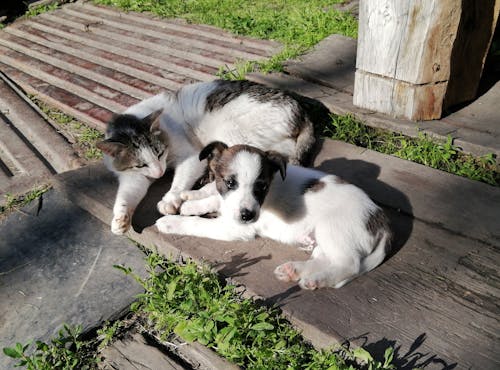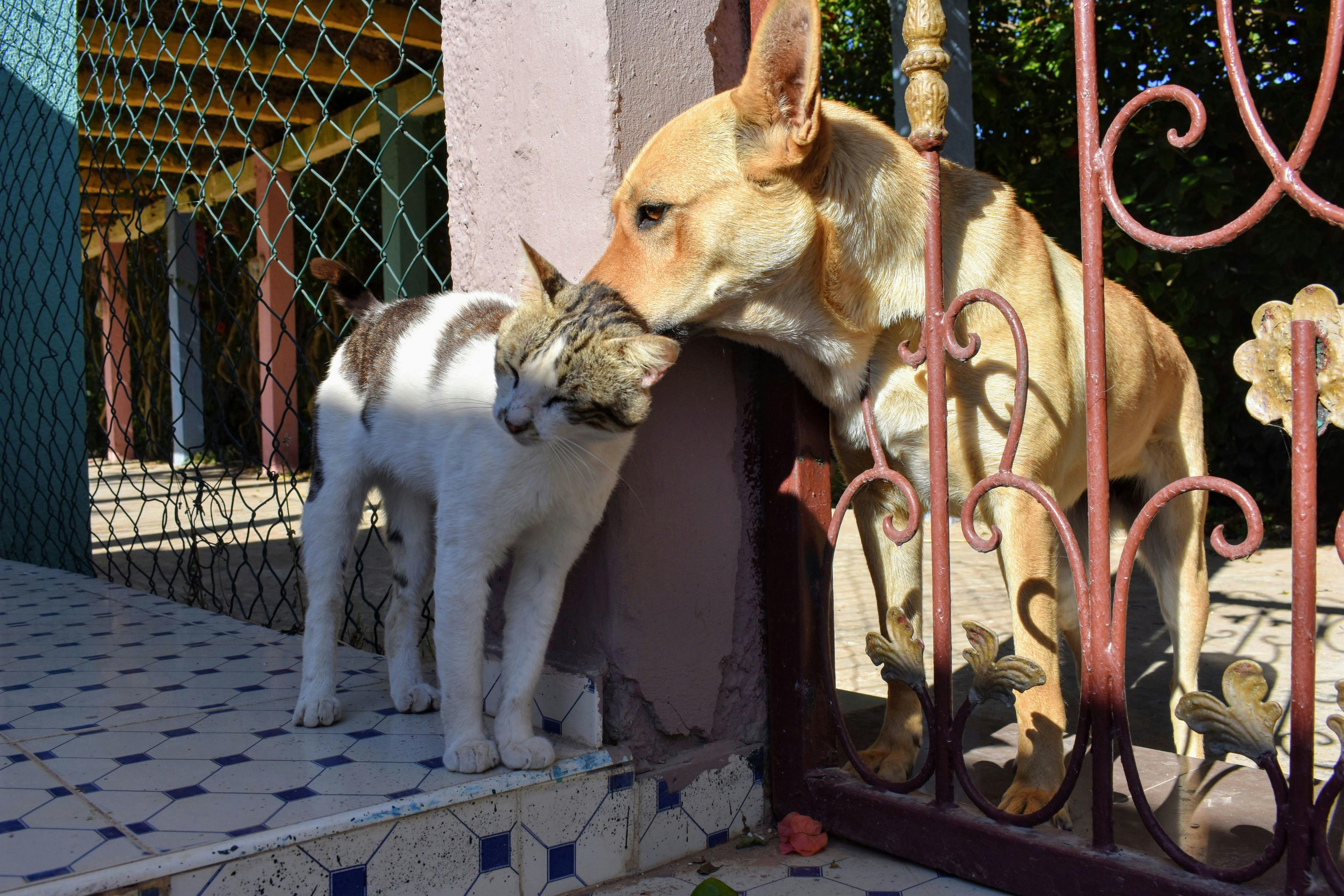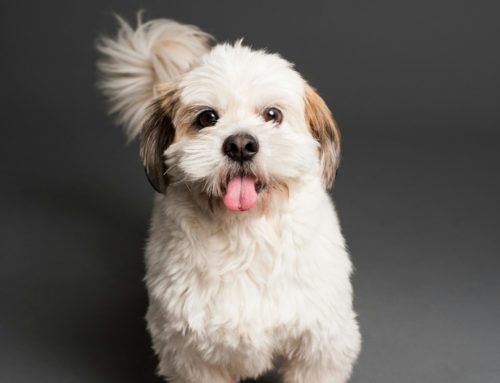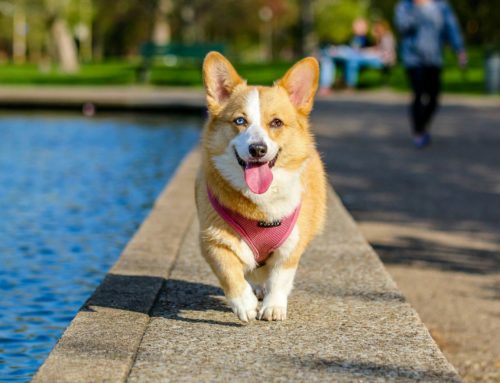In the grand theater of personal preferences, some rivalries have become cultural touchstones: Coke versus Pepsi, Star Wars versus Star Trek, and pineapple on pizza versus, well, everyone else. But perhaps none are as passionately debated as the ultimate showdown between Cats and Dogs. This seemingly simple choice often unravels a tapestry of deeper meanings, reflecting everything from our core personality traits to our daily habits and even our wardrobe choices.
As we embark on this journey into the heart of pet preference, remember that while broader trends inform our insights, they might not resonate with everyone’s unique experience. So, let’s dive into the intriguing realm of cat lovers versus dog enthusiasts and discover what your pet choice might say about you.

Are There Differences Between Dog People and Cat People?
Research has extensively explored the personality traits of individuals who favor either cats or dogs. It turns out that your choice of pet might mirror certain aspects of your personality. For instance, dog enthusiasts are often seen as the life of the party—pleasant, energetic, and friendly—while cat lovers tend to be more introspective, enjoying the quieter pleasures of a good book, a cozy nook, and perhaps a glass of wine.
A study conducted by the University of Texas examined the personalities of dog and cat people using the Big Five personality dimensions. The findings revealed that, much like their canine companions, dog people are 15% more extroverted and 13% more agreeable than their feline counterparts. These traits align with the sociable nature of dogs. Additionally, dog people were found to be 11% more conscientious—meaning they tend to be more disciplined and prefer a structured approach to life over spontaneous decisions.
In contrast, cat people were observed to be 12% more neurotic, which can manifest as anxiety, sensitivity to criticism, emotional instability, and occasional obsessive tendencies. However, cat lovers also scored 11% higher in openness to new experiences, which includes a greater appreciation for art, adventure, and unconventional ideas. This suggests that cat people might possess more unique and imaginative viewpoints compared to dog people.
While these trends offer a fascinating glimpse into how pet preferences can reflect personality traits, it’s essential to remember that these are general observations. You might find extroverted cat lovers or reserved dog owners, proving that personality is as diverse as the pets we adore.

What Defines a Cat Person’s Personality?
A cat person’s personality often reflects a blend of independence, introspection, and a quirky charm. If we were to survey millions of cat lovers around the globe, we’d likely find several common traits among them:
- Introverted: Cat enthusiasts generally prefer solitude or smaller, intimate gatherings over large social events. They may not be shy or antisocial, but they enjoy time spent alone or with a few close friends.
- Sensitive: They tend to be more attuned to their surroundings and others’ emotions, showing a heightened sensitivity to their environment and relationships.
- Independent: Reflecting on their feline friends, cat people often value their independence and self-sufficiency. They are comfortable being on their own and usually manage most aspects of their lives without relying heavily on others.
- Creative: As indicated by studies, cat lovers are often open to new experiences and ideas, which fosters creativity and open-mindedness. They may also possess a good sense of humor.
- Subtle: Just as cats communicate with gentle purrs or soft nudges, cat people are typically more subtle in their interactions. They notice details, listen well, and often have a refined sense of observation.
Do these traits resonate with you or someone you know?
What Defines a Dog Person’s Personality?
Dog people, while not the exact opposite of cat lovers, often display different personality traits:
- Social: Much like their canine companions, dog enthusiasts are usually extroverted and energized by social interactions. They thrive in social settings and often seek out opportunities to connect with others.
- Energetic and Enthusiastic: With dogs’ inherent need for play and activity, dog owners often share this zest for life. They are likely to embrace spontaneous adventures and activities.
- Affectionate: Dog lovers typically express their emotions openly and enjoy physical affection. They are generally more demonstrative of their love and are comfortable showing their feelings.
- Optimistic: Dog people often maintain a positive outlook and bring a sense of optimism to those around them. Their cheerful demeanor can be motivating and uplifting for others.
While these traits provide a general picture, remember that personality can vary widely. You might find outgoing cat lovers or reserved dog owners, proving that our preferences are as unique as we are.

What Animal Is Good for Depression?
In the U.S., an estimated 70-80 million dogs and 74-96 million cats are cherished as pets. About 37-47% of households own a dog, while 30-37% have a cat. Pets are known to positively impact mental and physical health. Pet owners often report lower levels of depression and loneliness and higher levels of social interaction. Both cats and dogs can serve as effective emotional support animals (ESAs), although dogs are typically preferred for their outgoing and friendly nature. Breeds like Golden Retrievers, Labradors, German Shepherds, and even small dogs like Chihuahuas can significantly benefit those with depression.
Other animals such as rabbits, guinea pigs, hamsters, birds, and even bearded dragons can also provide support for those experiencing depression. If considering an ESA, it’s important to consult with a healthcare professional to determine the best fit for your needs.
What Is the Best Pet for a Lonely Person?
The best pet for a lonely person largely depends on individual preferences and lifestyle:
- Dogs: Ideal for those seeking a companion who is interactive, affectionate, and eager to engage in play and activities. Dogs thrive on attention and often require more time and energy from their owners.
- Cats: Suited for individuals who appreciate a more low-maintenance companion that can offer companionship while respecting personal space. Cats are more self-sufficient and can entertain themselves, making them a great choice for those who prefer a less demanding pet.
Certain cat breeds, however, can be quite active and affectionate, blurring the lines between cats and dogs. When choosing a pet, consider factors such as time availability, physical activity levels, and grooming needs.

Cats vs Dogs Conclusion
Regardless of whether you choose a dog or cat, your pet’s health is paramount. Pets are susceptible to various health issues, some of which can be costly to treat. Pmpetspa offers comprehensive coverage options for unexpected accidents, illnesses, or injuries. Explore our plans to find the best fit for your pet’s needs and ensure they receive the highest quality care.





